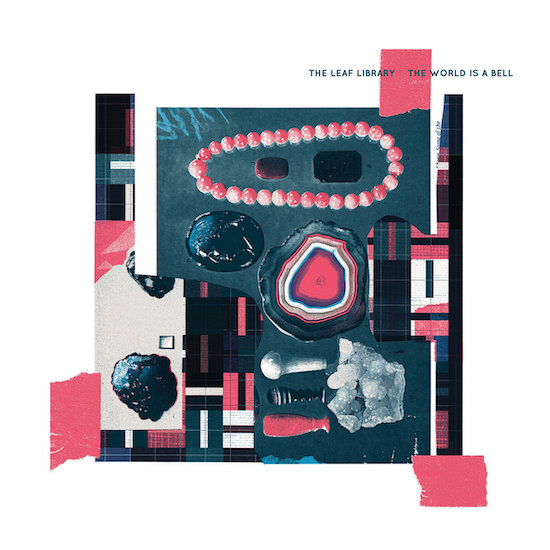The Leaf Library’s The World Is A Bell provides an expansive and rich listening experience, full of wandering basslines and disorientating rhythms. The compositions and arrangements of each piece on the project act as endlessly malleable concepts ensuring that instrumentation can flourish and change within the tracks as it fits. The result of this is an ethereal dream-like journey, traversing almost an hour and a half of delightfully sleep-inducing songs.
The opening cut, ‘In Doors And Out Through Windows’ is a wonderful show of charming instrumentation configured into a disorientating lucid dream by a jilted 7/4 time-feel. It is smooth and self-propellant enough to not demand an active awareness of its slightly-jagged appearance, but similarly in its uncanny nature doesn’t allow total relaxation. A creeping vocal entry sees “begin again beneath the August moon” flutter above the instrumental as the last word reverberates into a wistful fade, before recurring in a loving repetition.
The more natural acoustic arrangements fall to the wayside in ‘Hissing Waves’, ‘Patience’ and ‘Larches Eat Moths’ as varying forms of electronically produced sounds lead the way. The latter is a testing but worthy drone-come-dream-pop track with an endless warbling orchestral wall of strings and a sparse flickering of eerie vocals.
As the album persists the prominence of vocal melodies dissipates, leaving open the previously subtle magnificence of the production running throughout. Guitars glisten and synths glimmer as increasingly dense electronics waltz and pulsate around them. These extended, near-orchestral compositions undoubtedly require more patience than the first handful of songs, each of which brim with their own brand of twisted pop sensibility.
‘An Endless’ ushers in a recalling of the earlier examples of Kate Gibson bringing melody to Matt Ashton’s poetics, as they ruminate on mortality: “the day lifts the ashes away from earth, we blink and we’re gone”. The propellant bass groove reinstalls a well-needed breath of sonic vitality and energy into what was gradually leaning into near tiresome surrealism. The impressively expansive outro, ‘Paper Boats On Black Ink Lake’, intercedes fascinating sonic and instrumental territory, but does exert itself to fulfil the tropes brought with the classic ‘long-winded ending’.
The album’s titular reference to Johann Wolfgang von Goethe (“The world is a bell that is cracked, it clatters but does not ring out clearly”) is a pertinent antithesis to the summary of the album itself; there is certainly nothing clattering about this project. In fact, its stunning sounds ring out with astounding clarity, yet one may question if they ring out just a little too long?


